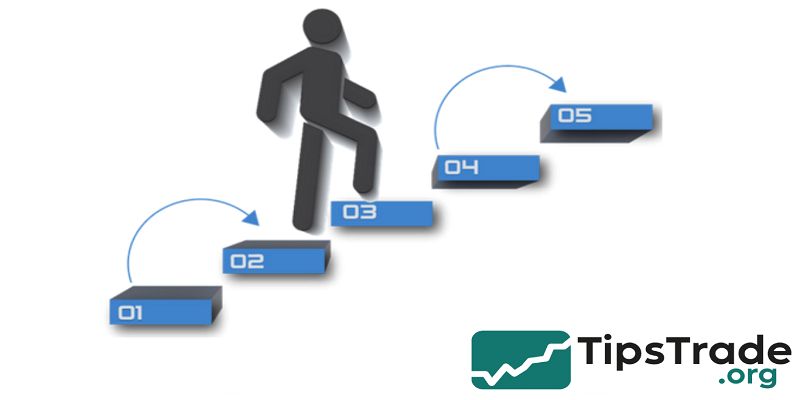Trader discipline is the foundation of consistent success in financial markets, enabling traders to follow their strategies and manage risks effectively. Trader discipline helps prevent impulsive decisions driven by emotions such as fear and greed, fostering long-term profitability. This article highlights the importance of trader discipline and offers practical insights to develop and maintain it for better trading outcomes.
What is Trader Discipline?

- Trader discipline is the consistent ability to stick to trading rules and processes regardless of short-term outcomes or emotional impulses. Unlike an emotional trader who reacts to fear, greed, or market hype, a disciplined trader maintains a rational framework.
- For example, when a disciplined trader sets a stop-loss at 2%, they will exit the trade even if their “gut” suggests holding longer.
- This prevents catastrophic drawdowns. Behavioral finance research by Nobel Prize winner Daniel Kahneman highlights loss aversion—the tendency to hold losing trades too long and cut winners too early—as one of the most common emotional traps.
- Trader discipline is what prevents this behavior. It also ensures that strategies are applied consistently, making performance measurable over time. In essence, discipline is not just about following rules—it is about creating habits that remove randomness from trading.
- Without discipline, even the best strategy can fail; with it, even a simple strategy can produce reliable results.
Why Discipline Matters in Trading

- Discipline matters because trading is not about predicting markets perfectly but about surviving volatility. In forex, stocks, and crypto, no one can win every trade. However, disciplined traders survive losing streaks and grow accounts steadily.
- A 2020 Journal of Behavioral Finance study found that traders with structured routines achieved 23% more consistent returns than those who traded impulsively. Discipline is crucial for three reasons: first, it ensures risk control, preventing large losses that wipe out accounts.
- Second, it supports emotional stability, keeping traders focused on long-term goals instead of reacting to short-term fluctuations. Third, it creates trust and credibility with investors or communities.
- For example, hedge funds rely on strict discipline because clients demand predictable risk profiles.
- In contrast, undisciplined retail traders often blow accounts in weeks. Discipline transforms trading from gambling into a professional practice.
- Without it, even advanced technical analysis or insider knowledge cannot guarantee success.
>>See more:
Common Challenges Traders Face with Discipline

Fear and Greed
- Fear and greed are the most destructive emotions in trading. Fear causes traders to hesitate, exit prematurely, or avoid valid setups.
- Greed drives them to overleverage, hold trades too long, or chase unrealistic gains.
- For example, during strong rallies, greedy traders often pile into overbought markets, only to suffer when corrections come.
Overconfidence and Overtrading
- After a streak of wins, many traders fall into the trap of overconfidence.
- This leads to overtrading—taking too many trades, risking larger amounts, and ignoring risk rules.
- Markets quickly punish overconfidence, often erasing weeks of profit in a few sessions.
Lack of a Structured Trading Plan
- Trading without a clear plan is a major hurdle to discipline and consistent performance. Without defined entry and exit criteria, position sizes, and risk controls, traders are prone to making impulsive decisions driven by emotions rather than logic.
- This lack of structure often leads to chaotic trading, frequent mistakes, and erratic results. A well-structured trading plan acts as a roadmap, guiding traders through decisions with discipline and reducing emotional influence.
- It defines when to enter trades, how to manage risk with stop losses and position sizing, and when to exit.
- Without such a plan, emotions like fear and greed take control, increasing the likelihood of poor outcomes. Discipline stems from following rules consistently, which a plan enforces
Emotional Reactions to Wins and Losses
- Strong emotions triggered by wins and losses undermine discipline and trading consistency. After wins, traders may become overconfident and increase position sizes or risk, ignoring their risk management rules.
- After losses, the impulse to “win it back” can lead to revenge trading with oversized positions. Both behaviors disrupt disciplined execution and expose accounts to large drawdowns.
- Emotional trading based on temporary feelings rather than a logical plan often results in repeated mistakes and performance degradation.
- Remaining disciplined means managing emotions effectively and sticking to the plan regardless of recent outcomes.
Habits of a Disciplined Trader
Disciplined traders share certain habits that protect them from emotional errors.
- Keeping a trading journal: Writing down entries, exits, reasons, and emotions creates self-awareness. Over time, traders can spot emotional triggers and correct them.
- Planning before trading: Disciplined traders never enter a market without pre-defined rules for entry, exit, and risk.
- Strict risk management: They rarely risk more than 1–2% of account equity per trade, ensuring survival during drawdowns.
- Process-focused mindset: Instead of celebrating profits, they celebrate following their plan. For example, taking a stop-loss according to the plan is considered a success in discipline.
These habits might seem simple, but they are the foundation of trading mastery. In fact, most professional traders agree that discipline—not strategy—is the secret to long-term profitability.
How to Build and Maintain Trading Discipline

Create a Detailed Trading Plan
- A solid trading plan should outline entry setups, risk per trade, stop-loss levels, take-profit targets, and maximum daily trades.
- Writing it down reduces the temptation to improvise under pressure.
Set Risk Management Rules
- Risk management is the backbone of discipline. Applying the 2% rule—never risking more than 2% of capital on a trade—ensures that no single loss can destroy an account.
- For example, with a $10,000 account, the maximum loss per trade would be $200.
Track Performance and Learn from Mistakes
- Keeping and reviewing a journal allows traders to identify repeating mistakes.
- For instance, noticing that most losses come from trading late at night can lead to adjusting habits. Self-analysis is essential for growth.
Practice Mindfulness and Stress Control
- Trading discipline is not just mechanical; it is psychological.
- Mindfulness practices such as meditation, deep breathing, or simply walking away from screens after losses help reduce stress.
- Research from Harvard Medical School shows mindfulness reduces cortisol levels, improving decision-making under pressure.
Case Studies – Success Through Discipline
Case 1: Steady Growth in Forex
A disciplined forex trader risking only 1% per trade and strictly following a trading plan can achieve steady account growth despite losses.
- For example, Alex grew his account by 18% in one year not by high win rates but through effective risk management and emotional control.
- Limiting risk per trade preserves capital and prevents large drawdowns, allowing consistent gains over time.
Case 2: Collapse in Crypto Trading
- Conversely, traders ignoring discipline can suffer severe losses, as with Sarah’s crypto trading.
- After turning $10,000 into $40,000 in a bull run, she held positions driven by greed and ignored stop losses.
- When the market corrected, her account crashed to $8,000 quickly.
- This highlights how lack of stop loss use and emotional attachment to winning positions can wipe out months of progress.
Case 3: Improved Win Rate in Stocks
- John, a stock trader, improved his win rate by 12% through disciplined journaling.
- By tracking trades and recognizing losses stemmed from impulsive news-driven trades influenced by sensational headlines, he eliminated those trades from his strategy.
- His experience illustrates how self-awareness from record-keeping and discipline in trade selection directly boost performance.
Summary
Success stories emphasize the importance of:
-
-
Following a clear trading plan with predefined risk limits
-
Using stop loss orders to protect capital
-
Maintaining emotional discipline and not chasing greed or fear
-
Keeping a trading journal to identify and correct behavioral mistakes
-
Tools and Resources for Better Discipline

- Today, traders have access to tools that support discipline. Trading journal apps like Edgewonk and TraderSync allow traders to analyze patterns.
- Books such as Trading in the Zone and The Disciplined Trader by Mark Douglas are considered classics on trading psychology.
- Risk calculators and built-in tools in MetaTrader or TradingView help enforce proper position sizing.
- Communities like Babypips and TradingView’s Ideas section provide accountability by letting traders share setups and mistakes.
- Beyond trading tools, mindfulness apps such as Headspace and Calm help traders manage stress.
- By combining technology, education, and psychology, traders can reinforce discipline and consistency.
Conclusion
Trader discipline is not optional—it is the foundation of sustainable success. While strategies, markets, and technologies change, the ability to remain consistent, manage risk, and control emotions is timeless. Discipline transforms trading from gambling into a professional practice. Without it, even advanced tools cannot save a trader from failure. With it, even basic strategies can deliver reliable results. If you are serious about trading, start today: write a trading plan, apply the 2% rule, keep a journal, and practice mindfulness. The article above from Tipstrade.org has just provided you . We hope that you find it useful. Wishing you successful trading!
>>See more:

